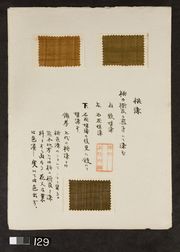Difference between revisions of "Peach"
Jump to navigation
Jump to search
| Line 18: | Line 18: | ||
== Resources and Citations == | == Resources and Citations == | ||
| − | Schoch, W., Heller, I., Schweingruber, F.H., Kienast, F., 2004:[http://www.woodanatomy.ch/ Wood anatomy of central European Species]: Stone Fruit: Peach,[http://www.woodanatomy.ch/species.php?code=PNPE Prunus persica (L.) Batsch] | + | Schoch, W., Heller, I., Schweingruber, F.H., Kienast, F., 2004:[http://www.woodanatomy.ch/ Wood anatomy of central European Species]: Stone Fruit: Peach, [http://www.woodanatomy.ch/species.php?code=PNPE Prunus persica (L.) Batsch] |
[[Category:Materials database]] | [[Category:Materials database]] | ||
Revision as of 11:10, 30 June 2020
Description
A small Chinese tree, Prunus persica, cultivated for its fruit throughout temperate regions. Peach wood has a fine uniform texture and a reddish shade. It is occasionally used for small items such as inlay and marquetry. Like other fruit trees from the rose family, peach trees exudes a water soluble gum from damaged locations on its truck and branches.
- See also [Uemera Dye Archive (Momo)]
Synonyms and Related Terms
Prunus persica; pêcher (Fr.); pesco (It.)
Physical and Chemical Properties
- Height = up to 7 m
- Leaves are lanceolate 7-16 cm long, 2-3 cm wide
- Wood density = 45 pcf
Resources and Citations
Schoch, W., Heller, I., Schweingruber, F.H., Kienast, F., 2004:Wood anatomy of central European Species: Stone Fruit: Peach, Prunus persica (L.) Batsch
